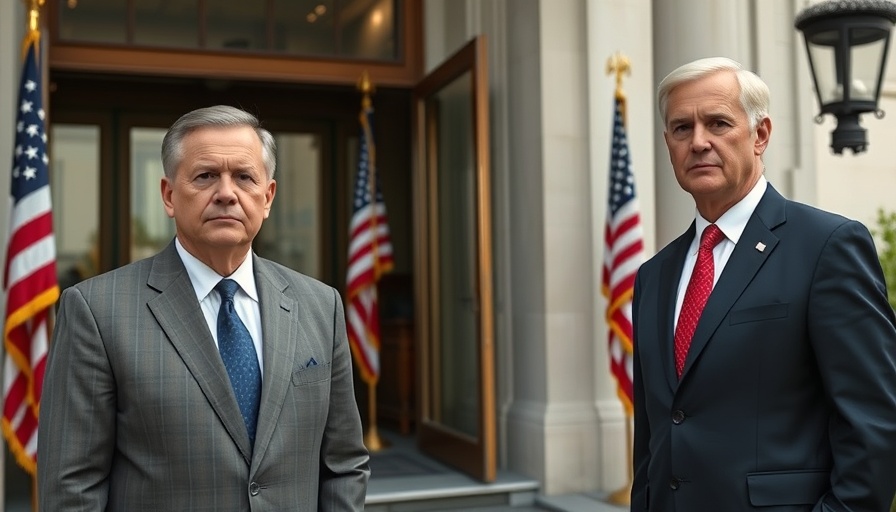
The New Era of South Africa-U.S. Relations
In a significant development for bilateral ties, South African President Cyril Ramaphosa has hailed his recent engagement with U.S. President Donald Trump as a transformative moment for cooperation between the two nations. The dialogue, described as "robust and fruitful," has set the stage for renewed efforts to enhance trade and investment discussions amidst an evolving global landscape.
Economic Cooperation Takes Center Stage
President Ramaphosa emphasized that the key outcome of this meeting is a commitment to ongoing dialogue focused on trade and economic collaboration. This engagement is particularly important within the context of the African Growth and Opportunity Act (AGOA), which provides a framework for African nations to boost trade with the United States. Issues such as investment flows, tariff structures, and market access are now at the forefront of negotiations between South Africa and the United States.
Addressing Misconceptions Regarding South Africa's Societal Issues
During the discussions, substantive concerns regarding safety and criminality in South Africa were raised. Rather than diminished by racial narratives, the President clarified that crime is a pervasive issue that crosses ethnic lines, affecting all communities in the nation. This nuanced discussion reflects a deeper understanding of the roots of criminality in socioeconomic contexts, challenging simplified perceptions.
A Clarion Call for Collaborative Solutions
As the talks signal a new chapter in U.S.-South Africa relations, they also resonate with broader themes of how global powers can engage constructively with African governments. The U.S. must step beyond transactional relationships to consider the complexities of governance, democracy, and sustainability in African nations. South Africa, as an emerging market, showcases how diplomatic engagements can pivot towards collaborative solutions for mutual growth.
Looking Ahead: Investment Opportunities and Challenges
Going forward, business leaders and policymakers have an opportunity to embed themselves in this evolving partnership. Increased U.S. investment could open doors in various sectors—from infrastructure development to technology transfer. Policy formulation must anticipate the challenges of integrating new investments while addressing vast inequalities and historical grievances that still linger in South African society.
As this diplomatic narrative unfolds, it is crucial for investors and scholars to monitor how these engagements impact not just South Africa but the broader African economic landscape. Strengthening ties underpinned by mutual respect and economic consideration could herald a new era for Africa in the global market.
 Add Row
Add Row  Add
Add 


Write A Comment